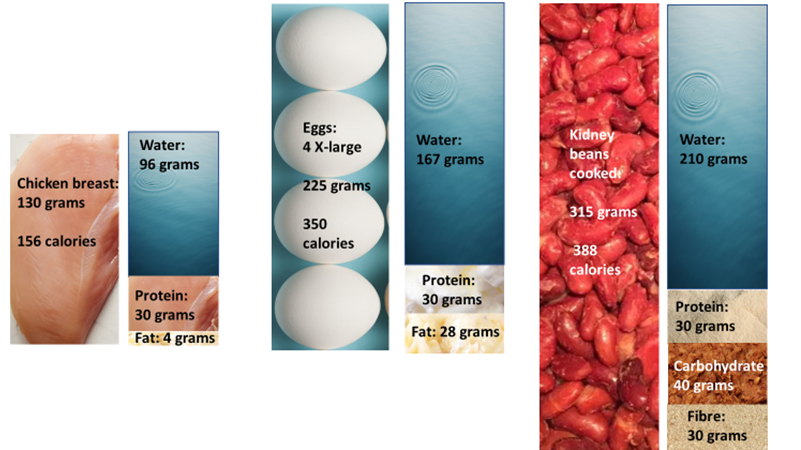
Nutrition to increase your muscle is more refined than simply eating more food or randomly increasing the protein in your diet.
First – here are the basic components for building muscle:
- Resistance exercise – you can’t build muscle without putting decent stress on the muscle
- Optimal nutrition
- Top of the list is optimal protein intake – both daily and per meal
- Next is adequate calories, enough to give you sufficient energy, both carbohydrates and fat for training
- A slight calorie excess helps you build muscle, and helps recovery
- Sleep and adequate recovery between sessions
This post focuses on getting your protein
The basics: Protein, carbohydrate, and fat
Of the 3 macronutrients protein, more accurately amino acids are required for building muscle. Carbohydrates and fats need to be eaten in adequate amounts for fuel depending on your energy needs. Too much and you’ll store the excess as fat. Too little and you will compromise recovery and muscle protein synthesis.
Protein comes mainly from animals. Plant proteins also exist but are a small percentage of most plants. A protein is composed of long chains of amino acids, digestion breaks them down into single amino acids, these single protein molecules pass through our gut cells and then into circulation where they are transported into cells in the body. Amino acids are then reassembled to rebuild and repair your muscles, build your immune system, and your enzymes, in fact, every cell in your body including those on your bones.
The Importance of Protein
Your body requires a regular daily supply of protein (amino acids) to rebuild and repair cells, muscle, immune system, blood, bones, organs, to make enzymes, neurotransmitters, and hormones. Our body has limited storage for protein so we must have a regular supply from the diet. Without adequate protein you will lose muscle tissue and your immune system will run down.
Muscle – the largest organ in your body, is made from protein
Muscle is the organ of longevity. The more muscle and the stronger that muscle, the healthier and more functional you will be as you age. Muscle is the organ that burns carbohydrates and fat. If we lose muscle when we lose weight, we are more likely to yo-yo diet as the engine – the fuel-burning organ is reduced.
How much protein do you need to build muscle?
The amount of protein needed to maintain or grow your muscle is a minimum of 1.6grams per kg body weight a day. More than this gives you a small advantage, however, this is a good place to start. Note that it is twice the RDA. The RDA is the amount needed to prevent deficiency, not the optimal amount to grow new muscle.
Take your weight and multiply it by 1.6 – 2.2
Eg. if you weigh 80kg, x 1.6 = 128 grams, or x 2.2 = 176.
That is the grams (net grams of protein) you need per day to reach your goal. Then we need to divide this fairly equally between the meals you are going to eat: 3 – 5 meals is optimal. The optimal amount per meal is at least 30 grams ideally 40 – 50grams
What is the optimal amount of protein to eat at each meal?
Now that you have the amount per day we need to eat that in an optimal way to trigger a process called muscle protein synthesis. Muscle protein synthesis (MPS) is what makes us build new muscle at the fastest possible rate. Scientists have found we need a specific amino acid (one of 20 found in protein) called leucine, and it is not until leucine reaches a certain amount in one meal that MPS is triggered. The amount of leucine required is 2.5 – 3 grams at one sitting. How do we get this amount of leucine? By eating 30 grams of net protein.
What does 30 grams of protein look like?
If we take a piece of meat – the example below is 130 grams of uncooked chicken – it contains not only protein but also water and fat. The amount of actual protein left if all the fat and water are removed is net protein.
Here are some examples of the amount of each food it would take to get 30 grams net. If you need a larger amount per meal, for example 45 grams – multiply the amount at left by 1.5.
The graphic above shows the amount of each food you need to eat to get protein to hit 30 grams net
Note that some protein has a lot of added calories in the form of fat – e.g. dairy and fatty meat and nuts, others as carbohydrate, e.g. legumes. For this reason they are not the best sources of protein.
To gain muscle you must also exercise in the right way
Weight-resistant exercise is required to grow muscle. Use a strength-building programme in order to use the protein you eat to build bigger and stronger muscles.
Proven supplements
The essential and proven- I recommend you add creatine:
Creatine Monohydrate – power strength hypertrophy, 0.04 g/kg/day 3- 5 grams a day or 1 teaspoon
Creatine:
Creatine can be found in some foods and is most prevalent in meat and fish. Available as a powder or in capsules. The primary benefit of creatine is an improvement in strength and power output during resistance exercise. Creatine is well-researched, and the effects are quite notable for a supplement. When used in conjunction with resistance exercise, creatine may modestly increase lean mass.
Creatine may have benefits for cognitive performance and is shown to improve working memory
I also recommend these to facilitate health and results
Omega 3 EPA plus DHA, you can buy our high quality, high strength Omega 3 here
Vitamin D – any brand take 3 tabs of 1000iu per day over winter, go to Labtests and ask for a vitamin D test to find out what your levels are. Aim for 80-120nmol/L. Many brands add Vitamin K2, this facilitates the calcium in your blood to get transported into your bones and keeps it out of your arteries.
Multi-vitamin – most brands are fine – take one a day.
If you are an athlete Co-Enzyme Q10 will also help your cellular energy production, and strength gains. Co-Q10 is depleted by statin medication.
Link to paper on Co-Q10
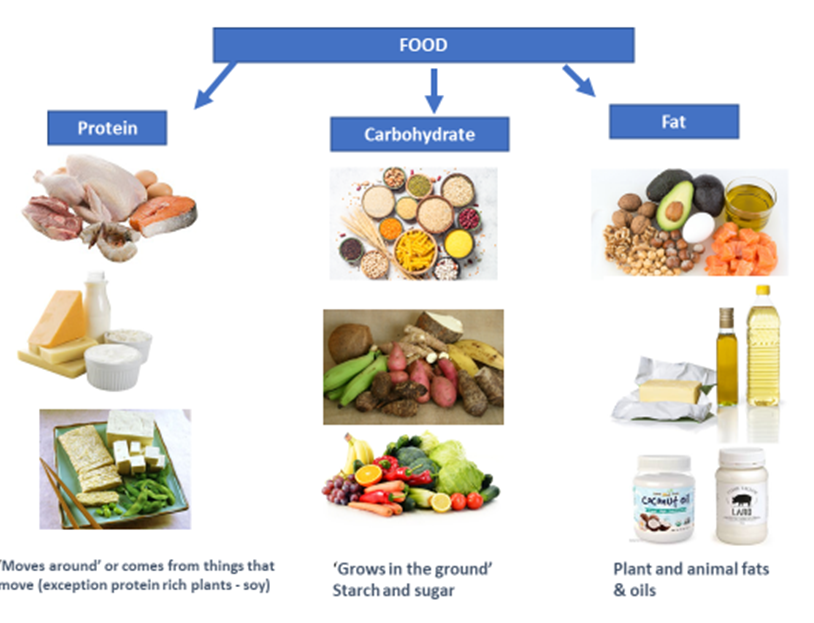
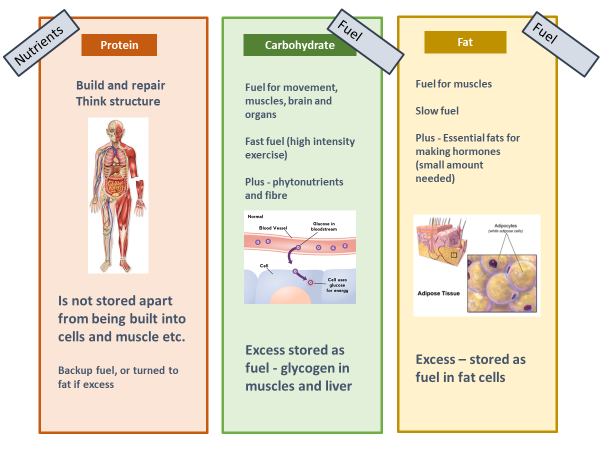
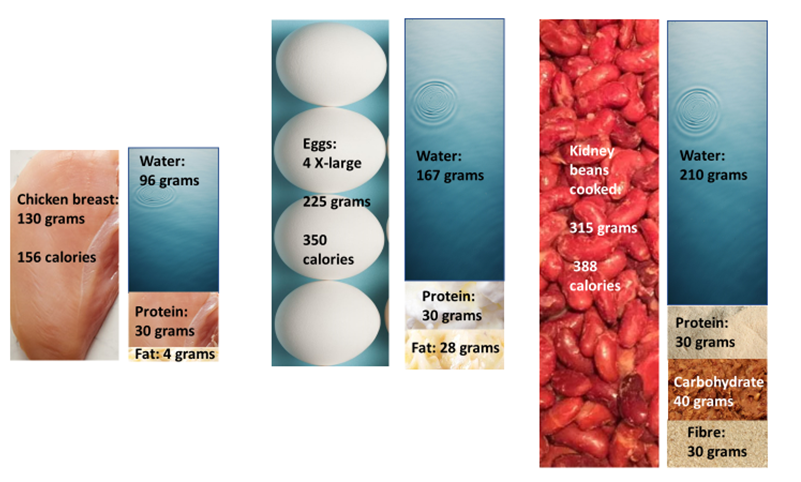
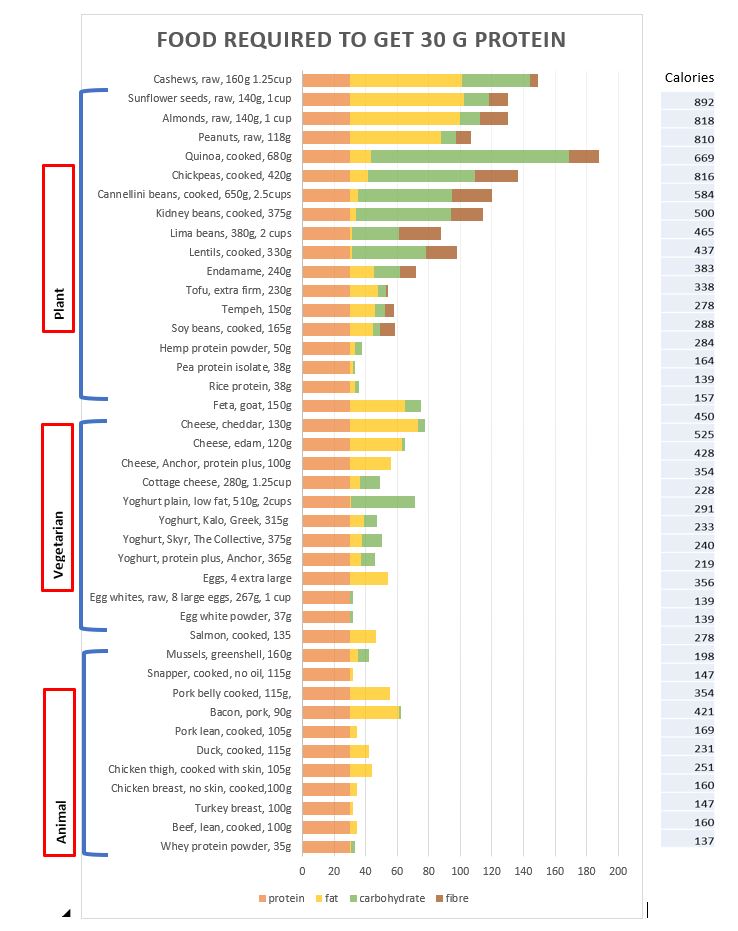
Does boiling or frying an egg decreases its protein value?
Not that I am aware of.